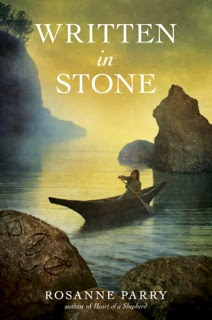My fourth grade teacher, an exceedingly no-nonsense woman named Ms. Jacques, seemed to have two great loves to communicate to my nine year old self--long division and poetry. She taught me dozens of poetic forms from Haiku to the ballad and (what seems more impressive to me now) showed me how to scan a line to fit the meter of the line before it. I loved the structure of writing to a particular format. Hunting for just the right word to fill out the rhythm or rhyme of a line was so much more game-like than ordinary writing which I detested at the time for its irritating reliance on standard spelling and punctuation. With a poem I could invent words to my heart's debliss and dispense with punctuation entirely.
Ms. Jacques introduced me to my first literary crush, the deliciously uncapitalized e e cummings. Since cummings had neither a first name nor a gender, my nine year old self imagined a pleasant, furry alien who might, should I come across him in my ramblings in the woods, translate for me the poetry of slugs and squirrels and sword ferns.
Eventually college broadened considerably my repertoire of poetry while siphoning off much of the pleasure I found in reading it and all of the joy I took in creating it. I stopped writing poems for years and didn't miss it until I started reading poetry to my own children and writing my own stories.
Novels are so long, I leaned on poetry to give me the satisfaction of something I could finish in a day. When I was stuck or discouraged, poetry gave me a reliable lift and often a fresh perspective on a character. And for all the effort I took over making marketable novels, it was a huge relief to write something that I would not only never sell, but never show anyone. I think having work that lives in my own mind and heart but not in the world is extraordinarily valuable. Jack Gantos would appear to agree with this. He wrote very movingly of his relationship with his unpublished stories in this month's Horn Book Magazine.
So it was a great surprise to me that when a friend asked me to do a poetry event this April that I agreed to write and read my own poems in public. At first the prospect of a public reading filled me with dread. Not that I'm nervous about public performance. I'm far too Irish for that. But I did fear that my poetry would lose its luster if I gave it away. The thing that made the difference was choosing a topic that I cared about. Jim and I decided to write and share poems about love and war--a thing which has touched both our lives. The 10th anniversary of the war in Iraq seemed a good occasion for it.
There is a story I've been thinking about writing for several years, based on the combat experience of one of my nephews. I've begun it and abandoned it several times because I could never quite get the right tone. But I went all the way back to poems I remember my father reading to me, "The Ballad of East and West" by Kipling and "Christmas at Sea" by Stevenson, and decided to write the story as a ballad. I haven't written a ballad since I was nine, but to my amazement, this simple sturdy poetic form fit the story like a glove and what was too hard--too sad--to write in prose, flowed like a stream in verse.
If you happen to be in The Dalles, Oregon on April 18th you'll have a chance to hear what I sincerely hope will be my only poetry reading ever. But it will be worth it for the music and the companionship of fellow poets and the chance to bring a story I've struggled with to light in the form of a poem.
Rosanne Parry is the reluctant poet and enthusiastic author of Heart of a Shepherd, Second Fiddle and the upcoming Written in Stone. www.rosanneparry.com





First of all, I'm loving the idea of e e cummings as a fuzzy alien. :)
But I loved this whole post, Rosanne. I understand the treasure of having writing only for yourself...and the freedom that a firm structure can give you to write things almost inexpressible in prose. That must be one reason there are so many poems about love!
Lastly, I'm so excited about your new book! I loved your two others; Heart of a Shepherd is one of my very favorites.
I have been thinking about this idea of writing for yourself ever since you sent me this post, Rosanne. Truly intrigued. This needs to be something I do more of.
Gosh, Thanks Faith. I'm so glad you enjoyed the books. I'm thinking about working on the screenplay for Heart of a Shepherd, so that would be a great new challenge.
Yes, in my imagination ee cumings had antennae and hovered a few inches above the ground humming pleasantly about "the leaping greenly spirits of trees and the blue true dream of sky." How could you not like that alien?
And I'm super excited about Written in Stone, too. I wrote a version of that book in blank verse a while back but I like it much better in prose. And I'm thrilled to learn it's been chosen as a Jr. Library Guild selection. What an honor!
What an honor is right! Can't wait to read it.
Great post, Rosanne. I'm also a big fan of keeping some writing private!